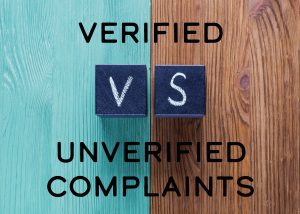 When filing a lawsuit in California, the original complaint may be either verified or unverified. If it is verified, the plaintiff makes assertions under the pains and penalties of perjury. A verified complaint also forces the defendant to respond to the lawsuit with a verified answer. This tactic forces the defendant to immediately make statements about the allegations under oath. There are strategic reasons to use – and not use – a verified complaint when filing a business lawsuit in California. Learn more about this litigation tactic so you can ask your litigator if it is right for your case.
When filing a lawsuit in California, the original complaint may be either verified or unverified. If it is verified, the plaintiff makes assertions under the pains and penalties of perjury. A verified complaint also forces the defendant to respond to the lawsuit with a verified answer. This tactic forces the defendant to immediately make statements about the allegations under oath. There are strategic reasons to use – and not use – a verified complaint when filing a business lawsuit in California. Learn more about this litigation tactic so you can ask your litigator if it is right for your case.
Pros and Cons
As with anything in life, there are pros and cons to using a verified complaint. As discussed, the most pressing pro is that it forces the defendant to submit a verified answer. These statements can be disproven in litigation – which means your attorney can ask for the defendant to be penalized for lying under oath. You might be awarded attorney’s fees or discovery sanctions for the perjured evidence. At trial, the defendant will be made to look like a witness who is not credible to the jury. By starting your lawsuit with a strong hand, you can have more control over the direction that discovery takes throughout the case.
 Business Lawyers Blog
Business Lawyers Blog

